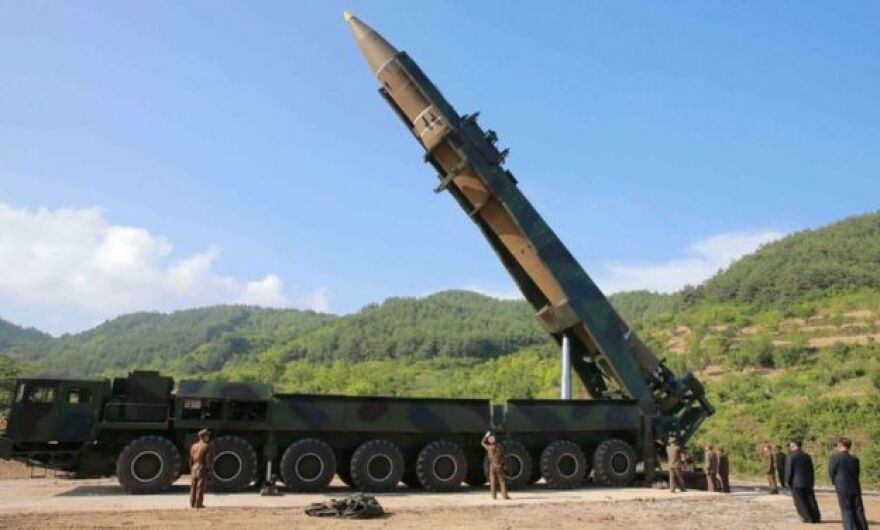Hawai‘i residents were stunned Saturday morning by what turned out to be a false alarm of an incoming ballistic missile. While state emergency officials have apologized for the error, the emergency alert sent residents into a panic. Many scrambling to figure out what to do next. HPR Reporter Ku’uwehi Hiraishi has this story.
Everyone in Hawai’i will likely remember exactly where they were when they got the emergency alert – “BALLISTIC MISSILE THREAT IN BOUND TO HAWAI'I. SEEK IMMEDIATE SHELTER. THIS IS NOT A DRILL."

Like many people sleeping in on the first three-day weekend of the year, the alert woke up Joe Chung and his family.
“My sister-in-law was waking everyone up and everyone got panicked,” Joe Chung.
Panic. His mother-in-law saw folks on the street running for shelter and he couldn’t remember what it was they needed to do in this situation. But he was skeptical.

“First thing I said was did you hear from Pearl Harbor?” says Chung, “Usually they have the signal – the siren. But I didn’t hear it. So I knew it was ok.”
55-year-old Mary Garcia was half way through her morning shift at the Kapahulu Texaco when she got the alert.

“When I got the alert we were thinking people just playing around,” says Garcia, “But some of the customers were so panicked, yeah. So that’s when I started believing in it.”
She immediately called her husband and her son who offered to pick her up from work. But her work place had no protocol in place for this scenario. After talking to her boss, they decided to stay open for business.
“And I was just trying to calm all customers,” says Garcia, “But there was this one lady she was so panicked and shaky. I tried to calm her down.”

Eventually she did. A few minutes later a fireman from the Kapahulu fire station came by to confirm the alert was a false alarm. Construction worker Terrence Evangelista was working on a home in Manoa when everyone on the job site received an alert on their cell phones.
“Actually I heard it. I went downstairs to smoke a cigarette, drink coffee. And I saw everyone (panic). And I just started laughing,” says Evangelista, “No sirens went off, why panic?”
While the absence of emergency siren activation was a sign of certainty for most, sirens did sound in some communities across the state.

The Hawaii Emergency Management Agency sent out another emergency alert via mobile phone nearly 40 minutes later letting everyone know it was a false alarm. Here’s Congresswoman Tulsi Gabbard.
“You know with the monthly nuclear alarm tests that began in Hawai‘i just a few months ago, people were being briefed that they would have literally 15 minutes to get themselves and their families to shelter,” says Rep. Gabbard.
With Hawaii residents already on edge over escalating tensions between the United States and North Korea, the false alarm was a wake-up call for many including state emergency officials.




